This article was medically reviewed by Michael Warner, MD. Dr. Warner is a practicing Internal Medicine Physician and Medical Director in Toronto. In addition to his medical practice, he runs AdvisoryMD, a consultancy that bridges medicine and business and serves to connect other physicians with real estate space, personal finance education, and career coaching. He received his MD from Queen's University School of Medicine in 2004 and his MBA from the University of Toronto Rotman School of Management in 2010.
There are 8 references cited in this article, which can be found at the bottom of the page.
wikiHow marks an article as reader-approved once it receives enough positive feedback. This article received 14 testimonials and 81% of readers who voted found it helpful, earning it our reader-approved status.
This article has been viewed 606,973 times.
Experts agree that most people who have gallstones don't require treatment, but you may want to dissolve your gallstones if they're causing abdominal pain.[1] Gallstones develop in your gallbladder when cholesterol or bilirubin builds up in your bile, which helps your small intestine digest fatty foods. Research suggests that gallstones can range from about the size of a grain of sand to the size of a golf ball.[2] If you're worried about gallstones, talk to your doctor to find out which treatment is best for your unique needs.
Steps
Pursuing Non-Surgical Treatment Options
-
1Consider oral dissolution therapy. Your doctor may prescribe a course of ursodiol to dissolve your gallstones without surgery. These treatments are essentially bile acids in pill form. Ursodiol, in particular, is a popular treatment because it is one of the safest common drugs available.
- Oral dissolution therapy is most likely to be successful in treating small stones (less than 1.5 centimeters in diameter) with high cholesterol content. About 30 percent of gallbladder patients are candidates for this treatment.
- If you are suffering from pigment stones, you will likely need to pursue other treatment.
- Oral dissolution therapy is usually minimally successful and used only if the patient cannot undergo surgery. [3]
-
2Pursue shock wave therapy. This therapy is often used in combination with oral dissolution therapy, although laparoscopic surgery is now so readily available that shock wave therapy is rarely performed today. This therapy, also called lithotripsy, uses sound waves to break gallstones into more easily dissolvable pieces.[4]Advertisement
-
3Understand that gallstones often recur following non-surgical treatments. Gallstones return in a majority of patients who pursue dissolution treatments. As a result, these treatments are no longer common. Typically they are used for patients who are physically unable to tolerate surgery.[7]
Exploring Alternative Remedies
-
1Treat your gallstones with plant terpenes. Scientific testing of a proprietary blend of plant-based compounds called Rowachol has produced encouraging results. A six-month course of treatment produced complete or partial dissolution of gallstones in 29 percent of a 27-patient research population.
- These plant terpenes appear to stimulate bile production by your liver and inhibit the formation of cholesterol crystals.
- Rowachol also enhanced the effectiveness of other solvent drugs.[8]
-
2Consider a gallbladder flush. Opinions differ regarding the efficacy of gallbladder cleanses and liver flushes. No scientific evidence exists that these treatments are effective[9] , but there are some anecdotal reports of success. Bear in mind that most of the “evidence” produced in your stool following a flush is not actually gallstone, but rather a byproduct of the treatment itself. That said, you may try various options:
- Fast 12 hours. Then, starting at 7 p.m., ingest 4 tablespoons of olive oil, followed by one tablespoon of lemon juice. Repeat every 15 minutes for a total of 8 treatment cycles.
- Alternatively, consume only apple and vegetable juice during the day. Then, around 5 or 6 p.m., ingest 18 milliliters of olive oil, followed by 9 milliliters of fresh lemon juice. Repeat every 15 minutes until you’ve consumed 8 ounces of olive oil.
- Gallbladder flushes often produce pain and diarrhea.
- By the next morning, you’ll typically pass soft green or brown spheres. Again, these are not usually gallstones, but rather the byproducts of the treatment.[10]
-
3Try acupuncture. This treatment may not eliminate existing gallstones, but it can ease spasms, increase your bile flow, and restore proper liver and gallbladder function.
-
4Treat the symptoms of your gallbladder disease with herbs or homeopathic remedies. It’s important to note that these remedies will not eliminate your gallstones; rather, under the guidance of a trained professional they may mitigate your symptoms so you can better tolerate the stones already in your system.
- Green tea, milk thistle, globe artichoke, and turmeric can all support liver and gallbladder function. Again, consult a trained medical professional before undertaking a herbal regimen. Used improperly, these herbs may trigger a gallbladder attack or produce other unwanted side effects.
- Homeopathic remedies for gallstones include colocynthis, chelidonium, and lycopodium prepared in specific concentrations. Note that there is no evidence that homeopathy is effective.
Preventing Gallstones from Forming
-
1Follow dietary practices that have been demonstrated to prevent gallstones. A number of practices have been linked to lower incidence of gallbladder disease:
- Consume polyunsaturated and monounsaturated fats.
- Eat plenty of fiber.
- Ingest caffeine as part of your daily diet.
- Follow a vegetarian diet.
- Avoid excessive intake of refined sugars such as sucrose and fructose.
- Some circumstantial evidence indicates eating large quantities of legumes can increase your incidence of contracting gallbladder disease.[11]
- Consume a minimal quantities of alcohol.
- Consider eating several one-ounce servings per week of peanuts or other nuts. This has proven useful in studies involving female subjects, in particular.[12]
- Eat regularly; avoid skipping meals.[13]
-
2Consume preventive nutritional supplements. Nutritional supplements containing vitamin C, soy lecithin, and iron have proven useful in preventing the development of gallstones.[14]
-
3Lose weight slowly and then maintain a healthy body weight. Rapid weight loss can increase the risk of developing gallstones. While obesity is a risk factor for gallbladder disease, you’ll want to eliminate this risk factor slowly through careful weight loss. Slow, steady weight loss of 1-2 pounds per week is best.
-
4Pursue allergy testing and then eliminate allergenic foods from your diet. Identifying and then avoiding foods that cause allergic reactions in your system can reduce your risk of developing gallstones. [15]
References
- ↑ https://www.mayoclinic.org/diseases-conditions/gallstones/diagnosis-treatment/drc-20354220
- ↑ https://www.mayoclinic.org/diseases-conditions/gallstones/diagnosis-treatment/drc-20354220
- ↑ https://www.aafp.org/afp/2014/0515/p795.html
- ↑ http://www.health.harvard.edu/family_health_guide/what-to-do-about-gallstones-the
- ↑ https://pubmed.ncbi.nlm.nih.gov/1486209/
- ↑ https://www.hopkinsmedicine.org/health/conditions-and-diseases/gallstone-disease-treatment
- ↑ http://www.mayoclinic.org/diseases-conditions/gallstones/basics/treatment/con-20020461
- ↑ http://www.altmedrev.com/publications/14/3/258.pdf
- ↑ http://www.mayoclinic.org/diseases-conditions/gallstones/expert-answers/gallbladder-cleanse/faq-20058134
- ↑ http://www.altmedrev.com/publications/14/3/258.pdf
- ↑ http://www.altmedrev.com/publications/14/3/258.pdf
- ↑ http://www.health.harvard.edu/family_health_guide/what-to-do-about-gallstones-the
- ↑ http://www.mayoclinic.org/diseases-conditions/gallstones/basics/treatment/con-20020461
- ↑ http://www.altmedrev.com/publications/14/3/258.pdf
- ↑ http://www.altmedrev.com/publications/14/3/258.pdf
About This Article
One way to dissolve gallstones is to take a course of dissolution medication, which can be prescribed by your doctor. However, if you have larger stones or pigment stones you may need additional treatment such as surgery. If want to dissolve gallstones without a prescription, try taking Rowachol, an over-the-counter plant-based compound which has been proven to help dissolve gallstones. Additionally, if your gallstones are not severe, you can try drinking green tea and eating food with turmeric to support your liver and gallbladder function and reduce symptoms. To learn how to change your diet to prevent gallstones, read on.
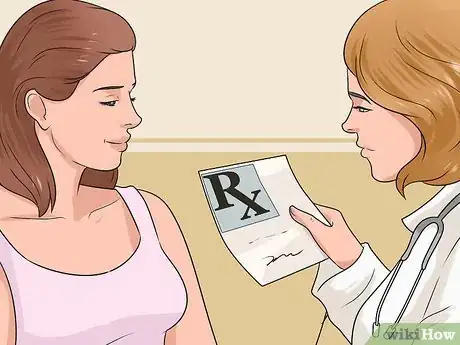
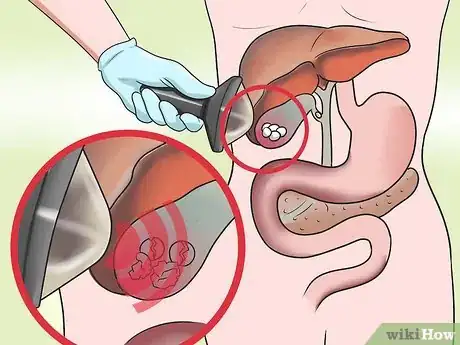
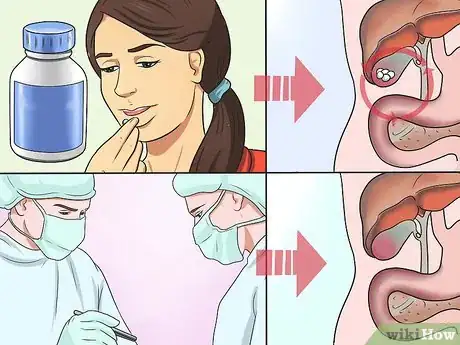
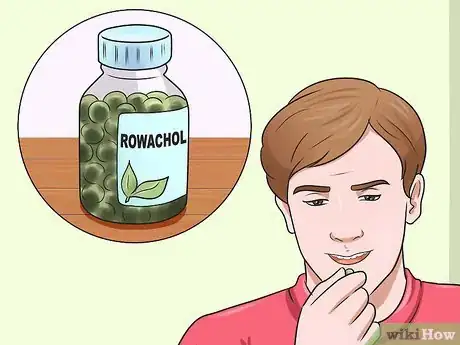
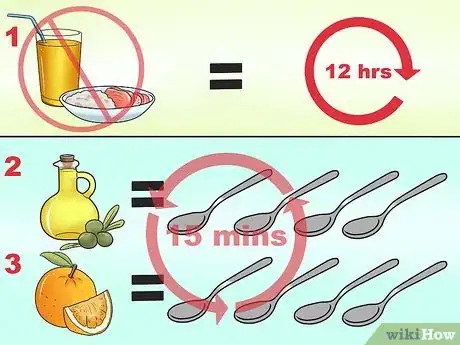
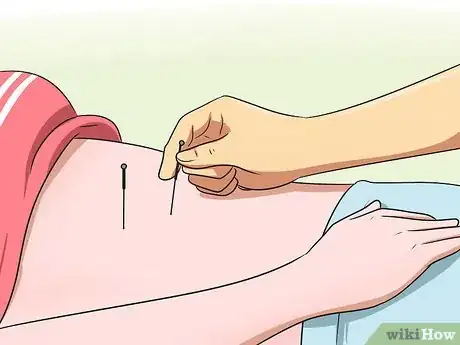
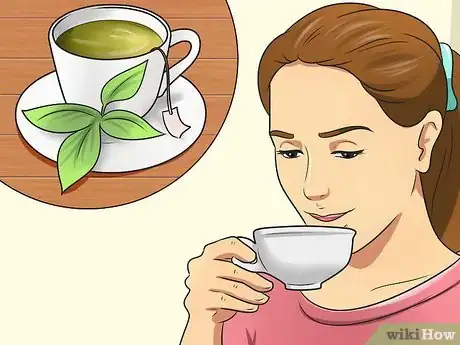
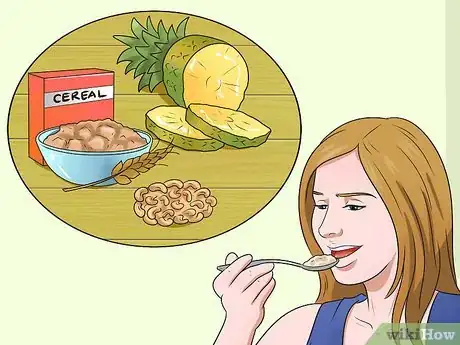
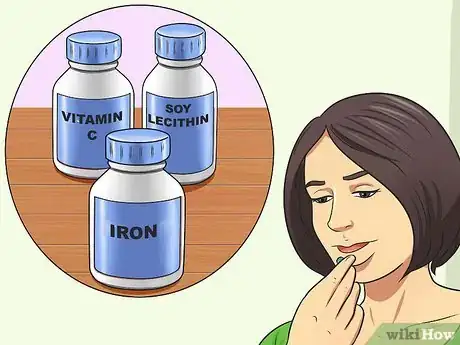
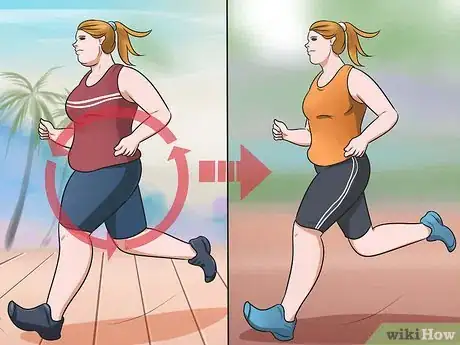
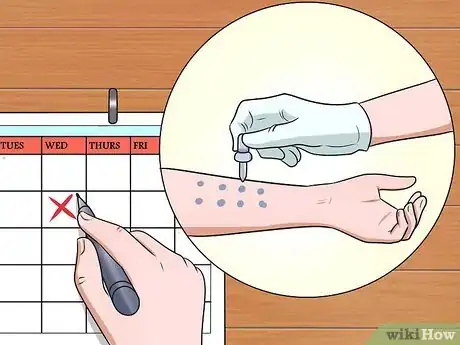
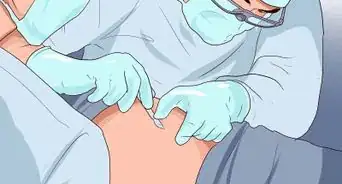
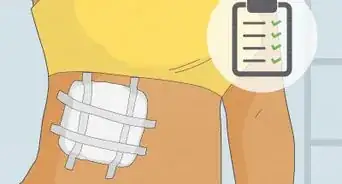
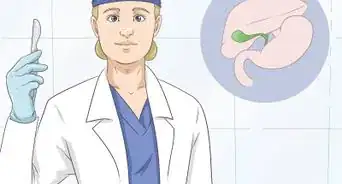
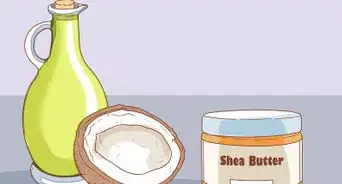
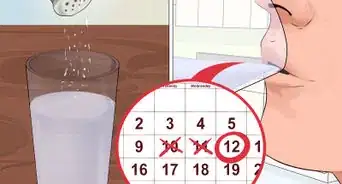
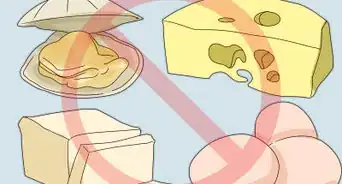
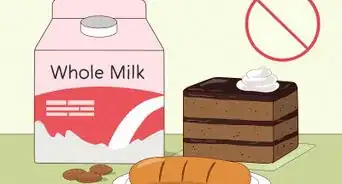
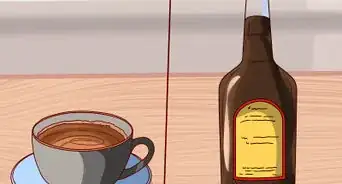










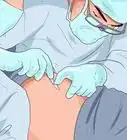
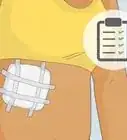
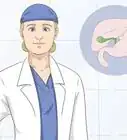
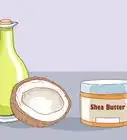



































Medical Disclaimer
The content of this article is not intended to be a substitute for professional medical advice, examination, diagnosis, or treatment. You should always contact your doctor or other qualified healthcare professional before starting, changing, or stopping any kind of health treatment.
Read More...